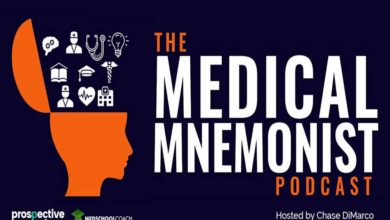In this final installment of the MedEdge Method mini-series, Chase DiMarco talks about self-care, rest, and growth. He dissects the benefits of self-care, why you need to stop procrastinating, and the relationship between rest and growth.
[02:25] Rest and Recuperation
[04:34] Self-care in Medicine [07:19] Why Procrastination is a Form of Self Hate [09:05] The Smallest of Increments are Greater than the Greatest of IntentionsRest and Recuperation
In medicine, the one essential aspect of studying that is very often overlooked is taking breaks. It’s understandable that with tight schedules and a great deal of content to cover, students probably struggle to find time for breaks. But as Chase explains, breaks and making time for self-care is as important as productivity. Unfortunately, not many students value breaks and self-care. This explains why most people shrink at the mention of maintenance or maintenance works. Maintenance is often associated with weakness and negativity.
However demeaning maintenance might be, it’s still crucial for everyday productivity. And it doesn’t matter whether it’s caring for the mind or body; always ensure that you schedule time for breaks daily, if not after every couple of hours. Remember, stress plus rest equals growth. So, if you’ve been studying for several hours (stress), take a break and come back rejuvenated to tackle the next portion of your study schedule.
Self-Care
Although there is no “one size fits all” formula for medics and medical students, specific coping strategies seem to make the journey smoother for most people. Self-care is one such example. For the most part, self-care is a person’s commitment to engage in activities that promote physical and emotional health. Although self-care is subjective, it’s generally about making yourself feel better. Working out, meditation, praying, going on a walk are all forms of self-care.
Chase further explains that the best self-care techniques involve changes that break the monotony in your daily routine. For example, if you’ve been sitting at your desk all day, the last thing you would want to do is binge-watch your favorite series. Although you’re essentially doing another task, you’re still fixed on a blue screen. Therefore, a great activity to partake in would be going out on a walk or preparing a meal. This way, you break the monotony, declutter your mind, and do something you enjoy doing.
Why Procrastination is a Form of Self Harm
The harm of procrastination is not only associated with a string of negative traits such as stress, but it’s also characterized by poor quality work and missed deadlines. As a medical student, the last thing you want to be associated with is shoddy work and missed deadlines. Regrettably, procrastination tends to build up into something more unmanageable called chronic procrastination. And chronic procrastination affects all aspects of our lives, including self-care.
Think of the last time you scheduled a walk or a workout routine. If you postponed your self-care sessions because you were too lazy, then procrastination has slowly crept into your personal life. So, stop procrastinating and do what needs to be done now. If you need to accomplish a particular task, schedule it and make sure you do it.
Homework
Do something today or this week for self-care. Plan it out, pick several options, and just take some time off your weekly routine.
For more study tips, grab a copy of Read This Before Medical School. Don’t forget to leave a rating! Share your experiences, tips, and suggestions to [email protected]. Or you can directly reach out to Chase on LinkedIn, Twitter, or Instagram. Join the Medical Mnemonist Master Mind Facebook group and find our Blog posts, Podcasts, and other Resources at FreeMedEd.org!
